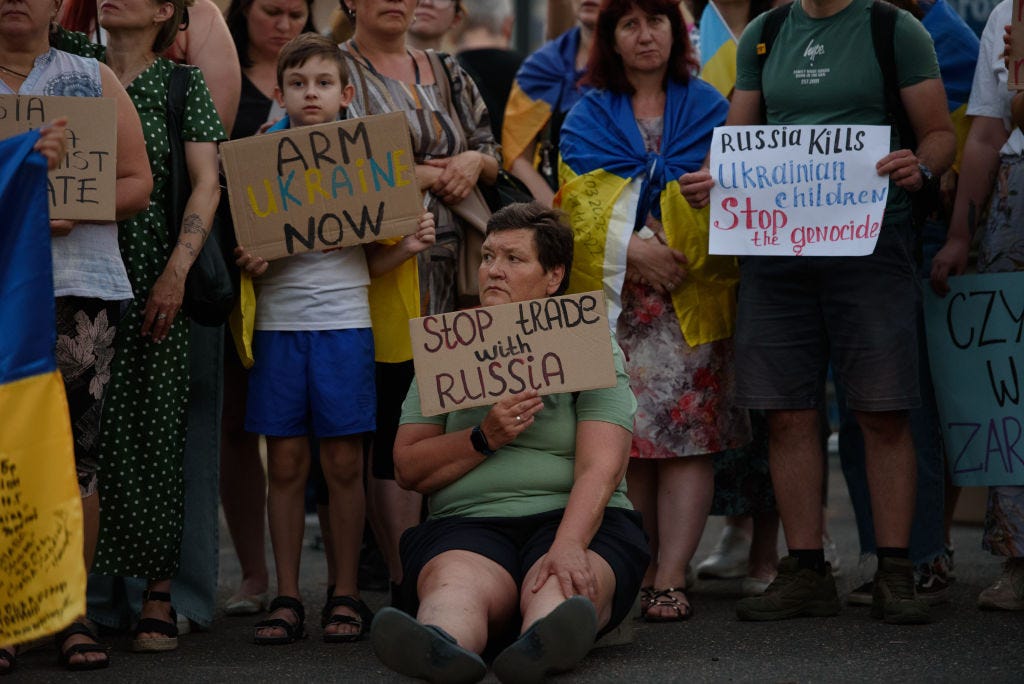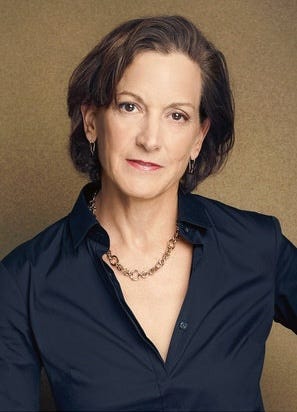How to put autocrats out of business
Author Anne Applebaum on why today’s dictators are kleptocrats and not ideologues, how the West enabled them, and how to fight authoritarianism at home and abroad
What connects Putin’s Russia, Xi’s China, Khamenei’s Iran, and even Trump’s hypothetical America made great again? Ideologically, none of these leaders seem to be remotely on the same page.
But, says author Anne Applebaum, who has detailed the evolution of authoritarian states in six books (including the Pulitzer Prize-winning Gulag: A History) and her reporting for The Washington Post and The Atlantic, looking for ideological consistency means we’re holding on to an outmoded model of authoritarianism. These new autocrats are kleptocrats first, driven by financial self-interest and bent on perpetuating their rule first and foremost to hold onto the power that makes their riches possible. Politics is secondary.
Just as important to understand is how the infrastructure of democratic economies — the interconnected webs of banking, finance, real estate, and incorporation — enabled the new generation of autocrats in the first place and supports them today, occasional sanctions aside, even as they increasingly exert influence against democracies, destabilizing governments across the West with sophisticated disinformation campaigns.
That interdependence, however, is one of the keys to moving past the autocratic era. Autocratic wealth depends on the ability to buy houses in London or apartments in New York City, to park superyachts in Mallorca, to recruit retiring Western leaders to serve on shell-company boards, and to send heirs to elite universities in the U.S. or Europe. And just as those things were made legal, they can be made illegal. Those systems can be reformed.
We talked to Applebaum about her latest book, Autocracy, Inc.: The Dictators Who Want to Run the World, why Western economic engagement with China and the former Soviet states went so wrong, what stops Americans from recognizing democratic decline when they see it, and how the broad majorities of people worldwide who want a freer future can push back against autocracy, at home and abroad.
A request for those who haven’t yet joined us: The interviews and essays that we share here take research and editing and much more. We work hard, and we are eager to bring on more writers, more voices. But we need your help to keep this going. Join us today to support the kind of independent media you want to exist.
I wanted to start by asking about the new authoritarianism versus the old. You've written extensively about both. And I think when people talk about this, there's this natural tendency to think it's just continuity, that there's all these analogies made to autocracies of the past. What's different about the new autocracy?
So like the autocrats of the past, we're talking about men who don't believe there should be any check on their power. There should be no institutions. There should be no judiciary. There should be no media. There should be no opposition that they don't somehow control. And that they have in common with Stalin, with Hitler, with others in the past.
The difference now is that if you're talking about Russia or China or Venezuela or Iran or one of a number of other countries, several different African countries, others in Asia, you're talking about people who are very, very rich. So they are billionaires.
They have often stolen money from their countries. They have laundered it abroad, sometimes with the help of the international financial system, the Western financial System, the Democratic world's financial system. And they've then taken it back into their countries. And it's part of what, in some cases, it is what helped them become powerful. And it's part of why they are so anxious to maintain power. Sometimes it's the leader who has the money. Sometimes it's his family. Sometimes it's a group of businessmen who are close to him.
But it's a small group of people who are very wealthy. The second difference is the level of sophistication in the technology that they have and the tools they have for repression and control. So it's not just the Orwellian idea of somebody watching you all the time, although, of course, there is that. Whether it's systems of street cameras that are connected to the internet, some of these countries do a great deal of surveillance.
Of course, China is by far the leading country in that realm. But it's also other kinds of control. It's control through the use of disinformation, through what's famously called the fire hose of falsehoods, which is designed to make people believe in nothing. It's through very sophisticated, modern smear campaigns that use social media plus the old-fashioned forms of state harassment to stigmatize people.
So it's a more sophisticated set of tools that they have. And then finally, the third thing that is new is their ability to work together despite not having a shared ideology. They don't have a shared ideology. So Russian nationalism and Chinese communism and Iranian theocracy are not the same. Nevertheless, they are able to work together in particular spheres, in the world of propaganda, in the world of technology.
Sometimes they do joint military operations or joint terrorist operations. And they seek cooperation where it's necessary without, as I said, having some huge institutional organization behind them. And they're unified in their dislike of the language and ideas of the democratic world, by which I mean the rule of law, transparency, rights, including human rights — a set of ideas that would hamper their power and which inspire their oppositions.
Now, within this group of countries, do you think there are motivational differences, which is to say in some of these autocracies, it really is a klepto-state model, and the motivation is quite clearly to grift money from a country.
And in others — China would come to mind — there is a widespread belief that to achieve the level of development from a poor country in the late 1970s, to achieve their ambitions, a democracy simply wouldn't be a workable model. Is there more of an actual belief in that autocratic system as opposed to just a cover for corruption?





